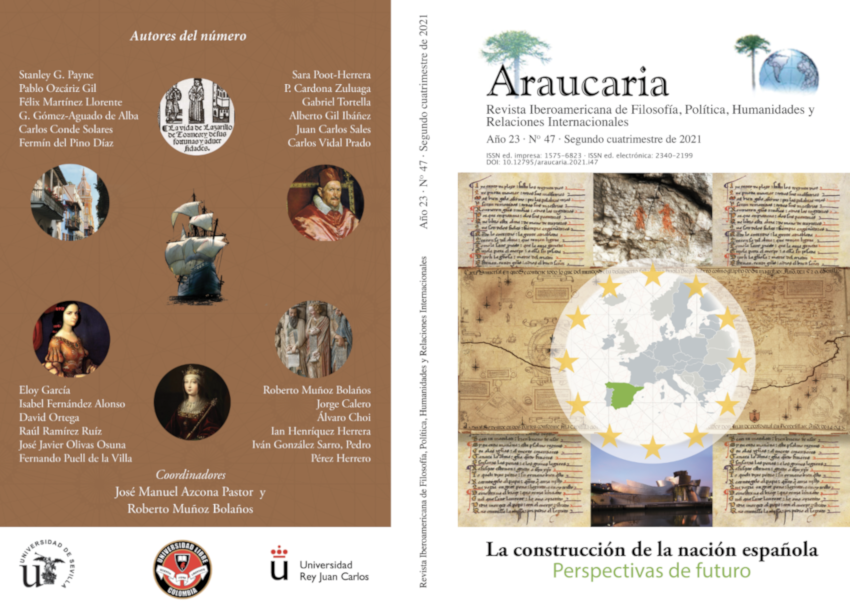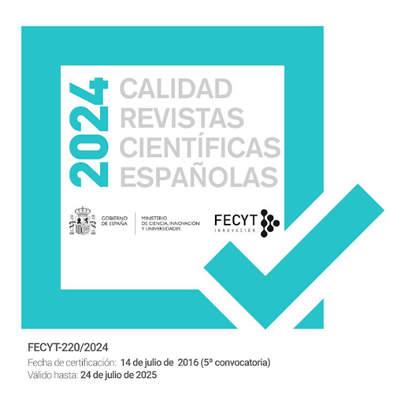The double normativity of the Constitution of 1978: the Transition as an Evolutionary Moment of the Spanish Social Being
DOI:
https://doi.org/10.12795/araucaria.2021.i47.13Keywords:
Spanish political transition, Spanish society, Evolutionary constituent powerAbstract
In this article there is a criticism of the thesis that defines the Spanish political transition as a successful attempt to put an end to the "law of the pendulum" that had been governing our constitutional history. On the one hand, this thesis underestimates the conditions of the Spanish situation of 1978, marked by the transit between two worlds, the modern one that inherited and the emerging postmodern, which would become an unquestionable reality from 1989. In addition, the Spanish Constitution of 1978 was drafted at a time when the political-normative conceptual assumptions of the dominant constitutional paradigm in Europe after World War II were declining. Likewise, the thesis ignores the specific spanish differential feature: the civil war of 1936-1939 and the subsequent rupture and radical separation of Spanish modernity into two distinct historical sections: one initiated with the French Revolution and culminated in the most absolute destruction of the pre-existing political and social order; and another that starts in 1939, since the (re)construction of zero of a radically new pattern of society and culture, with which the Spaniards encountered in December 1975 when they assumed their full political protagonism in a situation unprecedented and completely devoid of precedents in our national constitutional tradition.
Downloads
Metrics
References
Blühdorn, I., La democracia simulativa. Nueva política tras el giro posdemocrático, Bogotá, 2020.
García López, E., El significado intelectual del rey en la monarquía parlamentaria, Madrid 2021.
Gomes Canotilho, J. J., Direito Constitucional, 7ª. Ed., Coimbra, 2003.
Hesse, K., “Die normative Kraft der Verfassung”, 1959. (Trad. al español “La fuerza normativa de la Constitución”, en Escritos de Derecho Constitucional, CEC, 1992).
Loewenstein, K., “Militant Democracy and Fundamental Rights”, The American Political Science Review, Vol. 31, No. 3 (Jun., 1937), pp. 417-432.
Luhmann, N., Sistema jurídico y dogmática jurídica, Madrid, 1983.
Luhmann, N., “Verfassung als evolutionäre Errungenschaft”, en Rechtshistorisches Journal 9, 176-220.
Macías Fernández, D., Franco nació en África, Madrid, 2019.
Mayer, A., La persistencia del Antiguo Régimen, Madrid, 1984.
Nerín, G., La Guerra que vino de África, Barcelona, 2005.
Portabella, P., “Informe general”, Documental. Fragmento disponible en https://youtu.be/r4LzXO-n8sY
Ramiro, N., El animal ladino y otros estudios políticos, Madrid, 1974.
Rawicz, M., Confesionario de papel, Granada, 1997.
Sánchez Agesta, L., Historia del Constitucionalismo Español, Madrid, 1955.
Shklar, J., Después de la Utopía. El declive de la fe política, Madrid, 2020.
Solé Turá, J., Constituciones y períodos constituyentes en España: (1808-1936), Madrid 1977.
Tomás Villarroya, J., Breve Historia del Constitucionalismo español, Barcelona, 1976.
Downloads
Published
How to Cite
Issue
Section
License
Las ediciones impresa y electrónica de esta Revista son editadas por el Secretariado de Publicaciones de la Universidad de Sevilla, siendo necesario citar la procedencia en cualquier reproducción parcial o total.Salvo indicación contraria, todos los contenidos de la edición electrónica se distribuyen bajo una licencia de uso y distribución “Creative Commons Atribución-NoComercial-SinDerivar 4.0 Internacional”
Accepted 2021-06-29
Published 2021-07-19
- Abstract 1176
- PDF (Español (España)) 195











